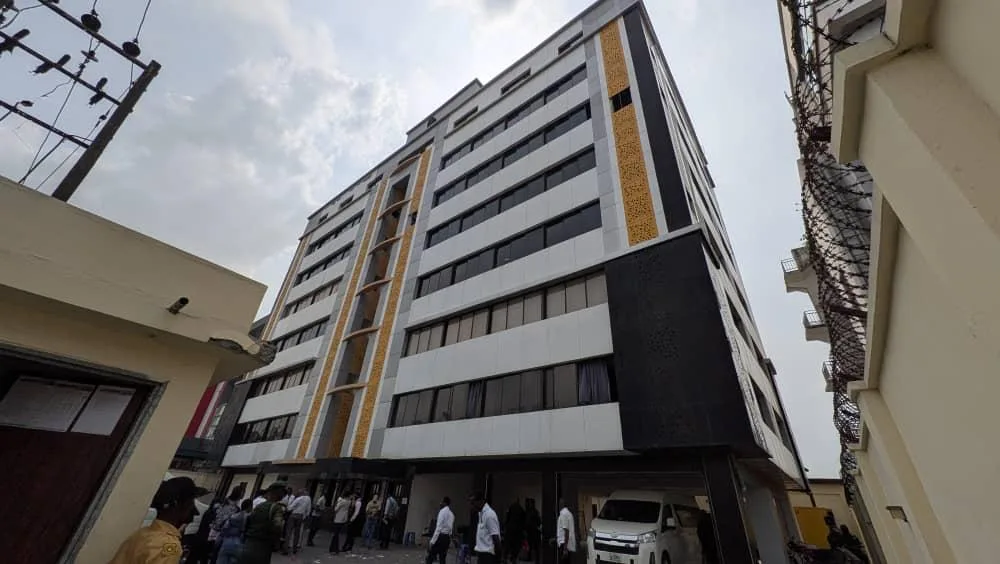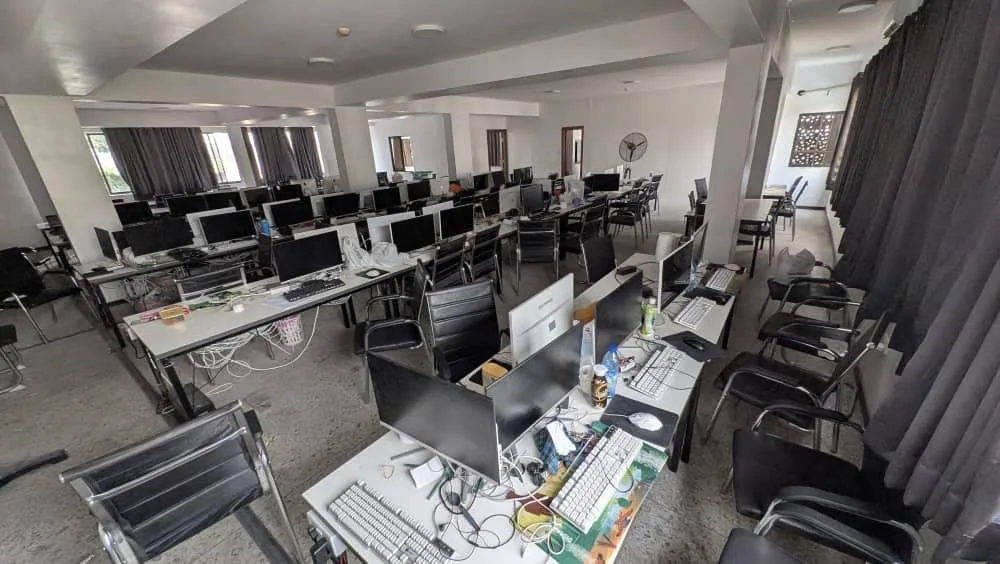The Economic and Financial Crimes Commission (EFCC) has announced the arrest of 792 suspects in a major crackdown on cryptocurrency investment fraud and romance scams.
The arrests were made on December 10, 2024, during a surprise operation at a seven-storey building, known as the Big Leaf Building, located at 7 Oyin Jolayemi Street, Victoria Island, Lagos.
Wilson Uwujaren, EFCC’s Director of Public Affairs, briefed the media in Lagos on Monday, revealing that the arrests followed months of surveillance and intelligence gathering on a criminal syndicate operating out of the building.
The operation targeted both Nigerian and foreign nationals involved in the illicit activities. Among those arrested were 148 Chinese, 40 Filipinos, two Kharzartans, and individuals from Pakistan and Indonesia.
According to Uwujaren, the building, which appeared to be a corporate headquarters, served as a training center for Nigerian accomplices. The foreign nationals were found to be training Nigerians on how to carry out romance and investment scams. They also used Nigerian identities to further perpetrate these fraudulent activities.

Inside the building, investigators discovered high-end desktop computers on every floor, with the fifth floor containing 500 SIM cards purchased for criminal purposes. The syndicate targeted victims primarily from the United States, Canada, Mexico, and various European countries, using phishing tactics to lure them into fraudulent investment schemes.
The Nigerian operatives were tasked with initiating online conversations with potential victims via platforms such as WhatsApp, Instagram, and Telegram, often posing as foreign women in romance scams or fake business and investment opportunities. Victims were directed to an online platform, www.yooto.com, where they were encouraged to pay activation fees starting at $35 USD.
Investigations revealed that the Nigerians were recruited based on their computer skills, particularly typing. They underwent a two-week training on how to impersonate foreign individuals in scams. Once the Nigerian operatives gained the trust of the victims, foreign operatives took over the scam operations, leaving the Nigerians in the dark about the final fraudulent transactions.
Surprisingly, the Nigerians were unaware of the identity of their employers. They received payments either in cash or through individual bank accounts, rather than corporate accounts.

EFCC investigators continue to probe the full extent of the scam and potential connections to international fraud networks. The commission is working closely with foreign law enforcement agencies in this regard. Items seized during the operation include desktop computers, mobile phones, laptops, and vehicles.
While the suspects have made statements and their systems are being examined, they are currently being held under a valid remand warrant and are expected to be arraigned in court soon.
The EFCC has emphasized that the operation highlights the fact that while Nigeria has been associated with fraud, foreign criminals have been exploiting the country’s reputation to establish and run their operations. The commission vowed that there would be no safe haven for criminals in Nigeria.


